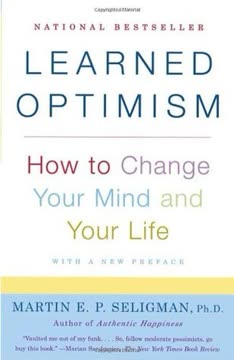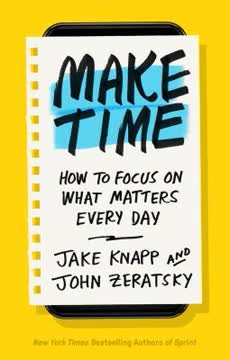Key Takeaways
1. Living Is Selling Yourself
The question is not, are you a salesperson? The question is, how might you become more effective?
Life is a sale. From childhood pitches for a higher allowance to adult negotiations for a job or choosing a restaurant, we are constantly selling. The fundamental question isn't whether you sell, but how well you do it. Becoming more effective at selling yourself is key to both professional success and a richer life.
Sell yourself first. In any transaction, the first thing people buy is you. Experienced salespeople understand this, prioritizing building rapport and trust before discussing products or price. Your being, your attitude, and your integrity are the initial and most critical elements you sell.
Attitude matters most. While skills are important, people are drawn to and "buy" optimists, those with integrity, and individuals who make them feel good. Your attitude is a powerful selling tool, often more influential than your technical mastery. Develop your skills, but never forget that people buy all of you, starting with your deepest parts.
2. People Buy Feelings, Not Just Facts
People value—and pay more for—the way you make them feel.
Emotions drive decisions. Contrary to the belief that people are purely rational, decisions are often made emotionally and then justified with logic. People are intuitive and instinctive, and appealing only to their rational mind misses the most powerful driver of choice.
Feelings over features. Studies show people tip more for waitstaff who make them feel good, regardless of service efficiency. Similarly, major business decisions can hinge on a simple "feeling" about a company's headquarters. People buy feelings, and the feeling you give them is paramount.
Comfort is key. In professional services, clients often choose and stay with firms not because they are the "best" technically, but because they feel comfortable. This comfort comes from the way you interact, listen, and make them feel important. Make the other person comfortable, and you lay the foundation for a successful relationship.
3. First Impressions Are Lasting (and Often Final)
The first impression, with startling frequency, is also the final decision.
Decisions are quick. People rarely make decisions after long deliberation; they often decide in minutes or seconds and then gather information to justify that initial feeling. This means your first impression is disproportionately important.
Stereotypes are powerful. Our brains automatically categorize and stereotype people based on limited information for convenience and survival. These instant assumptions, while often inaccurate, heavily influence how someone perceives you before you even speak.
Plan your first impression. Since people decide quickly and stereotype instantly, you must plan for your first impression. Be mindful of how you appear and what visual cues you present, as these will trigger immediate assumptions in the other person's mind.
4. Visuals Overwhelm Verbals
People think with their eyes and people hear what they see.
Seeing is believing. Visual information is processed faster and is more memorable than verbal information. A single image can convey a message more powerfully than repeated words, as seen in advertising where a brief visual can define the entire takeaway.
Words aren't visuals. While we read words, our brains remember them best by translating them into images. Collections of letters or abstract concepts are hard to visualize and thus hard to remember, unlike concrete images or symbols.
Watch your visuals. Your appearance, your surroundings, and any visual aids you use are critical. They trigger stereotypes and communicate messages, often subconsciously, that can override your spoken words. Ensure your visuals support your intended message and don't create unintended perceptions.
5. Simplify and Clarify Everything
Communicate so that you cannot be misunderstood.
Overwhelmed audiences. In today's complex world, people feel overwhelmed by choices and information. To reach them, you must communicate simply and clearly, cutting through the noise.
Clarity builds trust. Ambiguity is expensive and erodes trust. When you communicate clearly, people assume you understand your subject and have nothing to hide. Clarity is a signal trait of an expert, even more so than credentials.
Less is more. Constantly edit your message to make it simpler. Providing too much detail can confuse and paralyze listeners with "option paralysis." Focus on one strong argument to gain attention and allow the listener's questions to guide further detail. Use white space, short sentences, and pauses to give your message room to breathe.
6. Listen Actively, Observe Constantly
Listening makes you captivating.
Listening is active. We often view listening as passive, but effective listening requires active engagement. Since you can't take notes in conversation, form visual images of what the speaker is saying to absorb and recall details better.
Bodies reflect minds. Our physical posture and actions reflect our internal state. Engaging your entire body when listening signals attention and helps your mind engage more deeply. The speaker will notice and appreciate this regard.
Observe what isn't said. People often don't articulate their deepest thoughts or feelings, which reside in the subconscious. Listening only captures what they know and are willing to say (about 10%). To understand the full story, you must observe their actions, posture, and environment.
7. Connect Emotionally: Heart Over Head
Great presentations are not intellectual; they are spiritual. You must reach the heart and soul.
Emotion drives action. Whether selling a product, presenting an idea, or leading a team, people are moved to act by emotion, not just logic. You must reach their hearts before their heads will follow.
Inspire, don't just inform. A great teacher inspires, a great presenter motivates. Effective communication conveys that the subject matters deeply to you, making it matter to others. Financial planners sell the feeling of security, recruiters sell the thrill of belonging and achievement.
Passion over eloquence. Eloquence can impress, but passion moves people. Audiences respond to speakers who are genuinely invested and feel the difference their message can make. Don't aim to be impressive; aim to be moving.
8. Be Authentic and Predictable
Build an authentic brand; there is no other kind.
Authenticity wins. Great brands, whether corporate or personal, are authentic and built on integrity. People have faultless detectors for fakes; trying to be someone you're not will eventually be exposed and erode trust. Being true to yourself is easier and builds enduring relationships.
Predictability builds comfort. People feel most comfortable with those whose behavior they can predict. This doesn't mean being boring, but being consistent in your habits, responses, and values. Unpredictability, like Dr. Jekyll and Mr. Hyde, creates anxiety and erodes trust.
Consistency matters. Respond promptly, keep your word, and maintain consistent habits. These small acts of predictability signal reliability and make others feel safe and comfortable in their relationship with you.
9. Invest in Yourself and the Details
You have to invest. The investments you make, of both time and money, demonstrate your confidence in what you are offering.
Show your commitment. Under-investing in your business or yourself makes your efforts look tentative and signals a lack of faith. Paying a premium for quality tools, services, or even transportation demonstrates confidence and acts as insurance for your success.
Details make the difference. In a world of overwhelming options, people struggle to differentiate. The more similar options appear, the more important the tiny differences become. A typo, a forgotten pen, or a slightly late response can disproportionately influence a decision.
Master the small stuff. Ninety percent of success is showing up, and showing up reliably. Mastering the ordinary tasks and paying attention to small details signals your capability to handle larger ones. Be the reliable performer who consistently dots the i's.
10. Seek Discomfort and Keep Learning
That which does not destroy me, makes me stronger.
Growth requires discomfort. Like athletes who must burn to grow, personal and professional growth comes from pushing beyond your comfort zone. Seek out situations that make you uncomfortable, confront your weaknesses, and embrace challenges.
Mistakes are gifts. Your greatest strides forward often follow steps backward. View mistakes and failures as opportunities to learn and improve. Don't let the fear of discomfort or failure hold you back.
Continuous learning. Education doesn't end with school; it's a lifelong process. Keep reading, listening, and learning about diverse subjects. This not only expands your mind but also enlarges your world and the number of people with whom you can connect by finding common ground.
11. Gratitude and Fairness Build Lasting Bonds
Always do right. This will gratify some people and astonish the rest.
Gratitude strengthens relationships. People crave appreciation and respect. Expressing genuine gratitude, especially in unforgettable ways, builds loyalty and deepens bonds. Sending personal, timely thank-you notes is a simple yet powerful act that makes others feel important.
Fairness is demanded. While life isn't always fair, people insist on fairness wherever they have control. Treating others fairly, even in small interactions, builds trust and reciprocity. Conversely, perceived unfairness or cheating is often punished, sometimes severely, by others.
Sacrifice builds connection. Giving to others, whether time, money, or effort, creates bonds. It also benefits the giver by boosting self-regard. Be generous with your time for those who value you, and always strive to be fair in your dealings.
Last updated:
Review Summary
You, Inc. receives mixed reviews, with an average rating of 3.76 out of 5. Readers appreciate its concise chapters, practical advice, and inspirational tone. Many find it helpful for personal and professional growth, particularly in sales and business. Critics argue it lacks depth, contains outdated references, and rehashes familiar concepts. Some praise its accessibility and applicability, while others find it repetitive or poorly written. Overall, the book is viewed as a quick read with valuable insights, though opinions vary on its originality and effectiveness.
Similar Books










Download PDF
Download EPUB
.epub digital book format is ideal for reading ebooks on phones, tablets, and e-readers.








